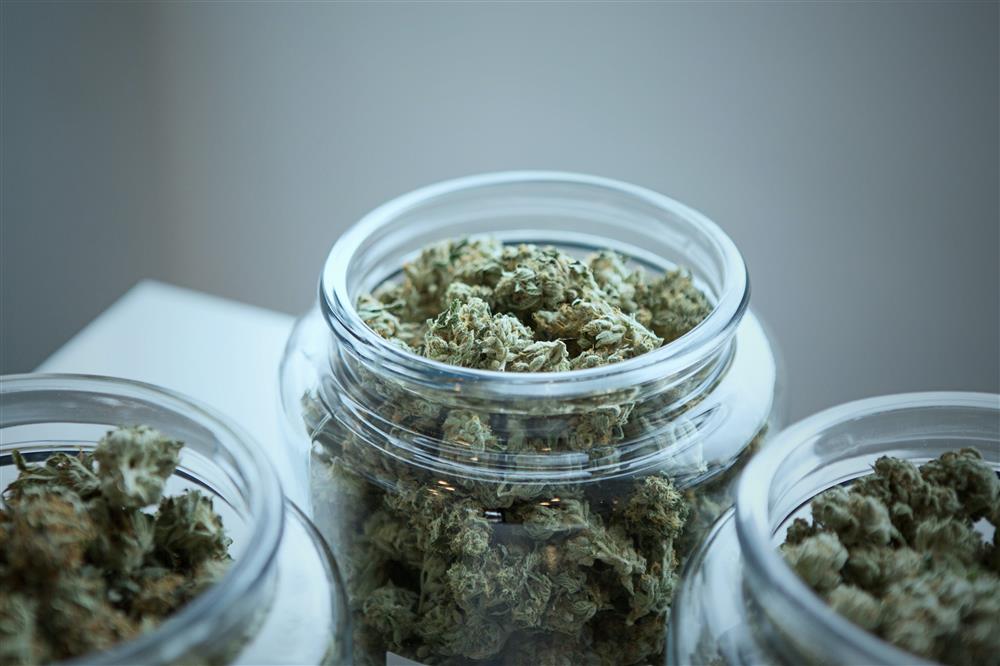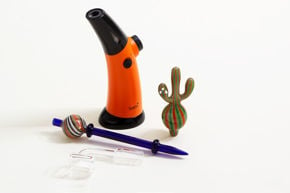
By Vanessa Matthews
Are you a cannabis connoisseur? Or alternatively, are you just starting to dip your toes into the world of weed? Wherever you’re at in your journey of cannabis discovery, you may not be aware of the many ways this wonderful plant can enhance our lives in so many arenas. Cannabis isn’t only for relaxing on the couch! (Although that is a very, very good use.)
Strains differ when it comes to the effects on the body and mind. This is determined partially by the balance of different cannabinoids the strain is composed of, mainly being THC and CBD. THC is the main psychoactive compound of cannabis, while CBD is non-psychoactive, and can have physically relaxing benefits. What this means is that different strains will enhance different activities and actions: Some will promote relaxation, some will encourage creativity and energy, and so on.
Improved Sleep
According to the National Sleep Foundation, approximately 30-40% of the population will experience insomnia at some point, and about 10-15% of adults will deal with chronic insomnia in their lives. With sleep disorders being so prevalent, it’s natural that more and more people will be interested in the potential cannabis has to improve sleeping patterns. Believe it or not, for centuries cannabis has been used as a sleep aid, due to its sedative and relaxing effects!
Interestingly, studies have demonstrated that cannabis can shorten the time it takes to fall asleep. For example, the largest retrospective study on the clinical effect on sleep through patient-reported data tested this theory on people with sleep problems, as well as people without any problems getting to sleep. As a median among all patients, it took 30 minutes less on average to fall asleep. For the patients with prior sleep issues, it took a median of 15 minutes less time to fall asleep. ”This data supports the use of cannabis-based medicine for the treatment of insomnia, especially insomnia with resistant or contraindications to traditional methods of treatment” (Triangle, MD & Jensen, MD). Sometimes, traditional methods don’t cut it for many people, and cannabis offers relief to many people in a natural way. Whether you’re smoking from a bong, joint, vape, or taking an edible, don’t rule out weed’s potential to improve your sleep patterns! Some great strains for sleep and insomnia include Tahoe OG Kush, Granddaddy Purple, Orge, and 9 Pound Hammer.

Pain Management
Cannabis has become increasingly popular for the use of pain management, as either an alternative, or addition to traditional medicine. This is not surprising, because today, chronic pain effects more people than heart disease, cancer, and diabetes combined. Common applications of cannabis for pain include nerve damage, inflammation, nausea, and more. But how does it work?
“The components of marijuana that most studies focus on for pain relief are cannabidiol (CBD) and tetrahydrocannabinol (THC). THC resembles the cannabinoid chemicals that occur naturally in the body. When people ingest or inhale THC, it stimulates the brain’s cannabinoid receptors. This activates the brain’s reward system and reduces pain levels” (Leonard, 2018).
And no, these aren’t just theories! The effects of cannabis and pain has been thoroughly researched, and has shown very promising results. A 2018 study conducted by the Journal of Psychoactive Drugs looked at 1,000 people using cannabis found that among the 65% of people using cannabis for pain reduction, 80% concluded it was very or extremely helpful. Amazingly, this allowed 82% of those people to either reduce or stop taking traditional pain medications, and 88% of those people were able to stop taking opioids! (Bachhuber, 2018). With the potential harmful effects of opioids including drowsiness, nausea, vomiting, constipation, and severe cravings, studies such as this demonstrate there is strong potential for patients managing their pain symptoms in a more natural, less addictive way.
But, what type of strain is best for pain management? A 2018 study conducted by the Center for Neurological Restoration tested the effectiveness of indica vs. sativa with patients suffering from chronic pain, migraine, etc. What was found was indica was much more statistically significant in terms of pain management, while sativa was preferred for feelings of happiness and energy (JACM, 2014). While everyone is different, it is apparent that indica strains have a stronger potential to relieve pain symptoms. Some strains that can be effective for pain management include ACDC, Blackberry Kush, Blueberry Headband, and Master Kush - all are indica or hybrid strains.
Say Goodbye To Hangovers
There’s a slew of reasons one might want to either forego or minimize the amount of alcohol consumed, even when it comes to partying it up. But there’s one thing that I think we all can agree we’d like to avoid: The dreaded hangover. Not only that, but staying away from alcohol at certain times can be ideal, because you can avoid the sickness and nausea alcohol can cause. That definitely doesn’t make for a good time. Opting for weed can be a great way to still get a buzz, without the crash.
Aside from weed’s ability to help you relax or just have a good time, choosing cannabis over alcohol can have more profound, life-effecting impacts. With rates of alcoholism remaining high, it’s no wonder why some of us are looking for less addictive ways to unwind after a long day, or for whatever reason you have them in your life. According to Alcohol.org, Alcoholism is one of the biggest public health crises in the United States, with symptoms including liver disease, nerve damage, ulcers, and shorter life expectancy. This addiction commonly leads to issues within relationships, work/school, finances, and health. Many people have found freedom from cycles of frequent drinking and the downsides that can come with it: This article is a wonderful example of how cannabis in place of alcohol can, believe it or not, help you pick up healthier habits and lead a more positive life. From self-medicating for depression and escapism from personal struggles and mental illness, alcohol abuse can have a profoundly hurtful impact on people’s mental and physical health. Annually, an estimated 88,000 people die from alcohol-related causes, deeming it the third leading cause of death in the United States, right behind tobacco and poor diet (NIAA, 2018). Opting for using cannabis in a responsible way in place of daily/binge drinking has the potential to switch around the lives of many people.

Possible Aid for Anxiety, Depression, and Appetite Loss
While the research is limited, cannabis has the possibility of reducing the impacts of anxiety and depression for some people. Everyone’s specific case from its severity to how mental illness presents itself vary widely, and are completely unique. However, there’s more information coming out that shows us the potential this plant has: A 2018 study conducted by the University of Washington studied medical marijuana patients, and the effect smoking cannabis had on anxiety, stress, and depression: “Medical cannabis users perceived a 50% reduction in depression and a 58% reduction in anxiety and stress following cannabis use” (Cuttler & Spradlin 2018). Interestingly, it was found that high CBD/low THC had the most positive effect on depression reduction, while high CBD/high THC strains had the most positive effect of stress reduction.
But, it's complicated. There is conflicting data on both sides on whether cannabis is harmful or helpful to mental health. There are instances where traditional medicine alone is essential, a mixture of traditional medicine and cannabis use does the trick, or simply cannabis can be the key to a more easily-manageable life.
Furthermore, cannabis has also been found to be an effective remedy for appetite loss. Loss of appetite can present itself in patients going through different types of cancer, anorexia recovery, and reduced appetite from certain medications that can cause nausea and vomiting. We all know about “the munchies," but how does this occur within the body? Cannabis is associated with certain receptors in the brain, the main one being Cannabinoid Receptor Type 1 (CB1) which is a receptor that is also associated with appetite regulation. “The CB1 receptor has been found to be active in several areas of the body known to stimulate eating behavior” (ADAI, 2013). Additionally, a 2018 study conducted on rats resulted in some interesting findings: "Using a new procedure to dose lab rats with cannabis vapor, the researchers found how the drug triggers hunger hormones" (ScienceDaily, 2018). Upon close monitoring of the rats’ eating behavior, it was observed that cannabis exposure would trick their appetite circuits into “hunger mode.” For some of us that means going in on a bag of Doritos... For others, adding cannabis into their routine can mean they are able to lead a healthier, more stable life. Some fantastic strains for increasing appetite include Blackwater, Purple Kush, Chemo, and Monster Cookies.

The Conclusion
Cannabis affects all of us completely differently, and that's the beauty of it! While it’s recreational for many, the applications of cannabis for medical purposes are legitimate and inarguable. So... How has cannabis helped you?




















